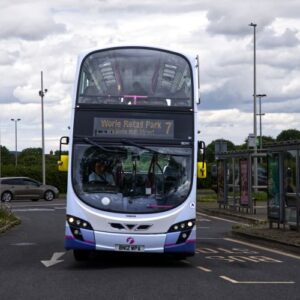
Major improvements coming to Worle Interchange
A series of upgrades at Worle Interchange will soon begin to improve accessibility, safety and the overall experience for bus...
Share: Freight consolidation
Freight consolidation is where many suppliers have goods delivered directly to a place (consolidation centre or delivery hub) where it is stored and then when needed is combined into a single fuller load for the onward journey, for example into the city centre.
Bristol City Council and its partners want to create a sustainable, inclusive and growing economy. It is recognised that road freight is one of the main ways of transporting goods and is necessary to a successful economy; however it brings with it several issues in terms of:
DfT estimates that between 2015 and 2050 LGV traffic will increase by up to 108%, HGV traffic will increase by up to 12%.
Freight consolidation is a way of removing freight related vehicles from our roads; this helps to reduce the negative impacts associated with road freight, which are often experienced most by people living in areas of deprivation. At its peak, a 70% to 80% reduction in the number of onward trips was seen by the freight consolidation scheme subsidised by Bristol City Council to serve the central area between 2004 and 2018. This meant that for every 10 vehicles that made a delivery to the consolidation centre, just 2 or 3 onward journeys to the central area were made. The return trip provided the opportunity to return packaging materials for recycling.
Users of freight consolidation have seen benefits such as:
Benefits for Bristol include:
In January 2021 leading green logistics service Zedify successfully applied for a £100,000 grant from Bristol City Council, which will be invested in a fleet of electric cargo bikes and trikes, as part of the One City Plan to have 95% of deliveries within the city centre made by electric vehicles within 10 years. Zedify will invest in an innovative new zero emissions delivery hub which will revolutionise parcel deliveries in Bristol has been launched, helping to cut congestion and air pollution.
The funding from Bristol City Council is part of Go Ultra Low West, a £7m transport project that will provide infrastructure for large scale conversion to electric and ultra-low emission vehicles in the West of England.
A Council spokesman said: “Removing polluting vehicles from our city centre is vital to help us tackle the issue of air quality in Bristol.
“We want to continue to reduce the number of heavy goods vehicles entering the city and encourage onward journeys to be done by zero-emission vehicles. This will help us improve air quality and contribute to our goal of becoming carbon neutral by 2030.
“Freight consolidation is a way of removing freight vehicles from our roads. It helps reduce the negative impacts associated with heavy traffic which are often experienced most by people living in areas of deprivation.
“We are looking forward to working with Zedify to help us reach our ambitious goals.”
The brand new depot will be centrally located and will allow HGVs and diesel vans bringing goods into Bristol to drop off their goods without entering the city centre. Zedify’s model consolidates inbound packages with local deliveries, and each route is then completed on a cargo bike or trike carrying up to 100 packages or 200kg.
The Department for Transport and Energy Saving Trust’s research shows that over 50% of all deliveries taking place in European cities have the potential to be made by cargo bike.
To discuss your freight needs please contact Zedify via telephone: 01172 141202, email: [email protected] or visit Zedify’s website.
If you would like to consolidate your freight please contact logistics providers.
For other queries about freight in Bristol please email [email protected].

A series of upgrades at Worle Interchange will soon begin to improve accessibility, safety and the overall experience for bus...
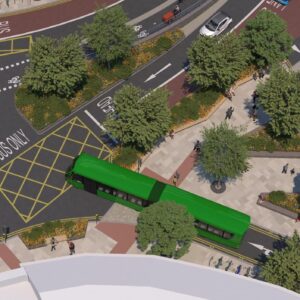
Initial work that will allow a busy junction in Broadmead to be improved will get underway later this month.
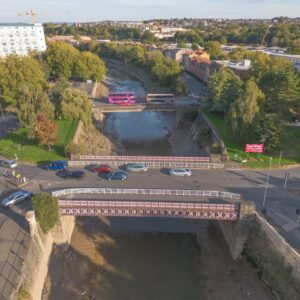
To help plan construction work to not only refurbish Bedminster Bridges, but to transform how people travel over them, investigatory...
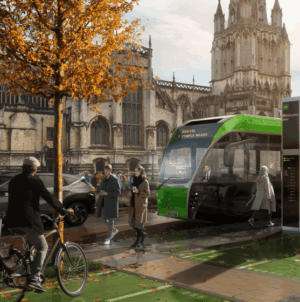
The Mayor and council leaders have today unveiled a new vision for the future of transport in the region.
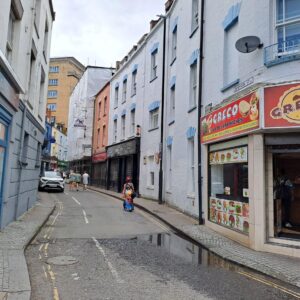
Plans to close part of Denmark Street were given the greenlight following a unanimous vote during yesterday’s (Thursday, 5 February)...